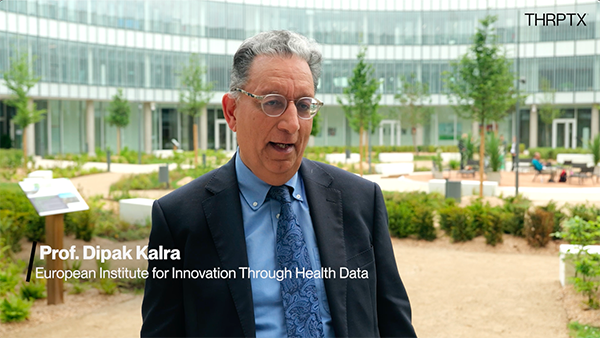Artificial intelligence, new medical approaches, the use of data, etc.: at THRPTX, the Therapeutics Innovation Summit organized by Servier on June 18, 2024, several experts discussed the links between health innovation and societal expectations. A look back on this round table in pictures.
The desire to promote more dialogue among all stakeholders
The expectations of patients and society in terms of innovation especially concern their care pathways and access to care in general, the acceleration of research, and the security of data.
Faced with a post-COVID society determined to participate in the scientific debate, the experts participating in this round table agree that the need for information, training and education of the general public is essential. Among other things, it will help to strengthen treatment adherence, and certainly bring new innovations through information sharing among stakeholders.

New technologies: high expectations and new challenges
While new technologies such as artificial intelligence have a significant impact on how scientists approach research, for patients, expectations for digital solutions to help them manage the healthcare system and their illness are also growing.
New technologies provide many new tools: promoting early diagnosis, accelerating the development of new drug molecules, improving patient care, or providing new monitoring tools for better adherence.
Nevertheless, they bring with them new challenges for the pharmaceutical industry: to be able to analyze the large amount of data generated by AI in order to help healthcare professionals propose the most suitable solutions for each patient as well as to be able to deal with regulatory challenges in terms of data processing.
The need to rethink treatment endpoints
Experts discussed the concept of value-based healthcare, according to which the value of a treatment must go beyond the notion of overall survival, and also take into account its impact on patients’ daily lives, and even more broadly on society and the environment. All these aspects involve close and strengthened collaboration among all health stakeholders.
The following people participated in the round table: Professor Dipak Kalra, President of the European Institute for Innovation through Health Data; Hugues de Thé, researcher specializing in cellular and molecular oncology and David Edwards, professor of bioengineering, specialist in respiratory diseases and founder of several start-ups, as well as Sandrine Bourguignon, Economist and CEO of Rweality
